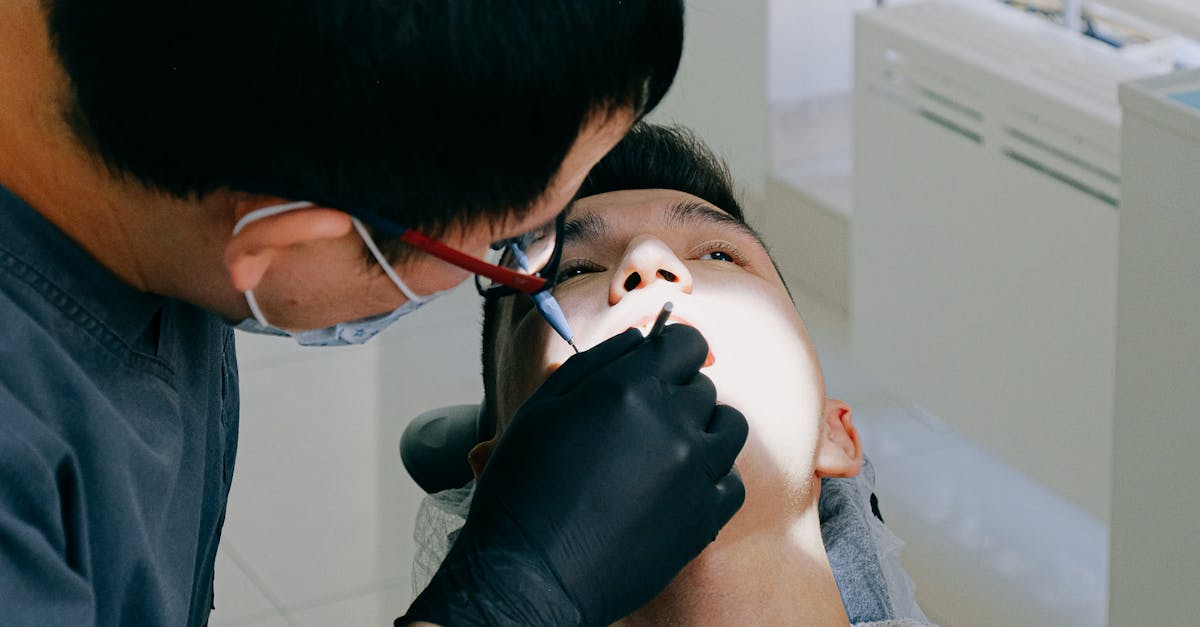The Role of Mouthwash in Oral Hygiene

Table Of Contents
Mouthwash for Bad Breath
Maintaining fresh breath is a common concern for many individuals. Mouthwash serves as an effective solution, often containing specific ingredients designed to combat halitosis. These formulations can provide not just a temporary fix but also long-lasting freshness by neutralising unpleasant odours and reducing the presence of bacteria in the mouth.
Beyond just masking bad breath, many mouthwashes contain antimicrobial properties that target the primary culprits of oral odour. Ingredients like chlorhexidine and cetylpyridinium chloride actively work to eliminate odour-causing bacteria, contributing to improved oral health overall. This targeted action helps ensure breath remains pleasant throughout the day, making it a practical addition to daily oral care routines.
How Mouthwash Targets Odour-Causing Bacteria
Mouthwash works effectively against odour-causing bacteria by delivering active ingredients that disrupt their function. Many commercial mouthwashes contain antiseptic agents, such as chlorhexidine or cetylpyridinium chloride, that kill or inhibit the growth of these bacteria. By targeting the microorganisms responsible for halitosis, these products help to freshen breath and create a more inviting oral environment.
Beyond simply masking bad breath, the formulation of mouthwash often includes ingredients that can neutralise volatile sulphur compounds. These compounds contribute significantly to unpleasant odours in the mouth. Regular use of mouthwash not only reduces the bacteria count but also helps maintain a healthier oral microbiome, contributing to overall oral hygiene.
Mouthwash and Gum Health
Effective oral hygiene involves more than just brushing and flossing. Mouthwash plays a significant role in supporting gum health by reducing plaque build-up and preventing inflammation. Certain formulations contain antibacterial agents that help combat harmful bacteria, a key contributor to gum disease. Regular use can enhance the overall effectiveness of a dental care routine, ensuring a thorough clean that reaches areas toothbrushes may miss.
Incorporating mouthwash into daily practice can lead to noticeable improvements in gum condition. Many mouthwashes are designed to provide additional benefits, such as soothing irritated gums or strengthening gum tissue. It is essential to choose a mouthwash that specifically targets gum health, considering factors such as active ingredients and alcohol content, which may impact sensitivity for some users. Ensuring consistency in use maximises the protective effects against periodontal issues.
Preventing Gum Disease with Regular Use
Regular use of mouthwash can significantly contribute to maintaining gum health. The antibacterial properties found in many mouthwashes help combat the buildup of plaque, which is a primary contributor to gum disease. By reducing plaque accumulation, individuals can effectively lower their risk of developing gingivitis and periodontitis. Incorporating mouthwash into daily oral hygiene routines serves as an additional layer of protection alongside brushing and flossing.
Using mouthwash consistently can also help soothe irritated gums. Many formulations contain ingredients designed to reduce inflammation and promote healing. This is particularly beneficial for those who might experience sensitivity or discomfort in their gum tissues. A balanced mouthwash can effectively fortify gum health, ensuring that individuals keep potential problems at bay with regular oral care practices.
Mouthwash for Specific Conditions
People with specific oral health concerns may benefit from using specialised mouthwash. For instance, individuals dealing with dry mouth can find relief with products containing moisturising ingredients that help stimulate saliva production. Those managing conditions such as gingivitis might opt for an antibacterial formula designed to combat harmful bacteria while promoting gum health.
Different formulations of mouthwash address various problems, enabling tailored solutions for individual needs. Some mouthwashes contain fluoride to strengthen enamel and help prevent cavities. Others target sensitivity or offer whitening benefits, catering to personal preferences and concerns effectively, ensuring optimal oral health management.
Choosing the Right Mouthwash for Your Needs
Selecting an appropriate mouthwash involves considering individual oral health needs. Those experiencing persistent bad breath may benefit from antibacterial formulas designed to neutralise odour-causing bacteria. For individuals with sensitive gums or those prone to gum disease, alcohol-free options can provide a gentler alternative that still delivers effective results. Flavour preferences also play a role; some may prefer a stronger mint, while others might opt for milder varieties.
For specific dental conditions, there are mouthwashes tailored to provide added protection. Fluoride-containing formulas are beneficial for individuals seeking cavity prevention, while mouthwashes with chlorhexidine are often recommended to manage periodontal issues. It is crucial to read labels and consult with a dental professional to understand the active ingredients and their intended benefits, ensuring the chosen mouthwash aligns with overall oral health goals.
FAQS
What is the primary purpose of mouthwash?
The primary purpose of mouthwash is to help improve oral hygiene by freshening breath, reducing plaque, and preventing gum disease, depending on the formulation.
Can mouthwash replace brushing and flossing?
No, mouthwash should not replace brushing and flossing. It is a supplementary tool that enhances oral hygiene practices but is not a substitute for proper brushing and flossing techniques.
How often should I use mouthwash?
It is generally recommended to use mouthwash twice a day, after brushing and flossing. However, you should always follow the specific instructions provided on the mouthwash label or by your dentist.
Are there different types of mouthwash for different needs?
Yes, there are various types of mouthwash formulated for specific needs, such as freshening breath, fighting gum disease, or targeting specific oral health conditions. It's important to choose one that aligns with your oral health goals.
Is it safe for children to use mouthwash?
Some mouthwashes are specially formulated for children and are safe for them to use, typically after the age of six when they can spit it out. Always consult with a dentist before introducing mouthwash to a child's oral hygiene routine.
Related Links
How to Choose the Right Toothbrush and ToothpasteBest Practices for Daily Brushing Techniques
The Benefits of Regular Dental Cleanings
Understanding the Connection Between Oral Health and Overall Wellness
Creating a Sustainable Oral Care Routine